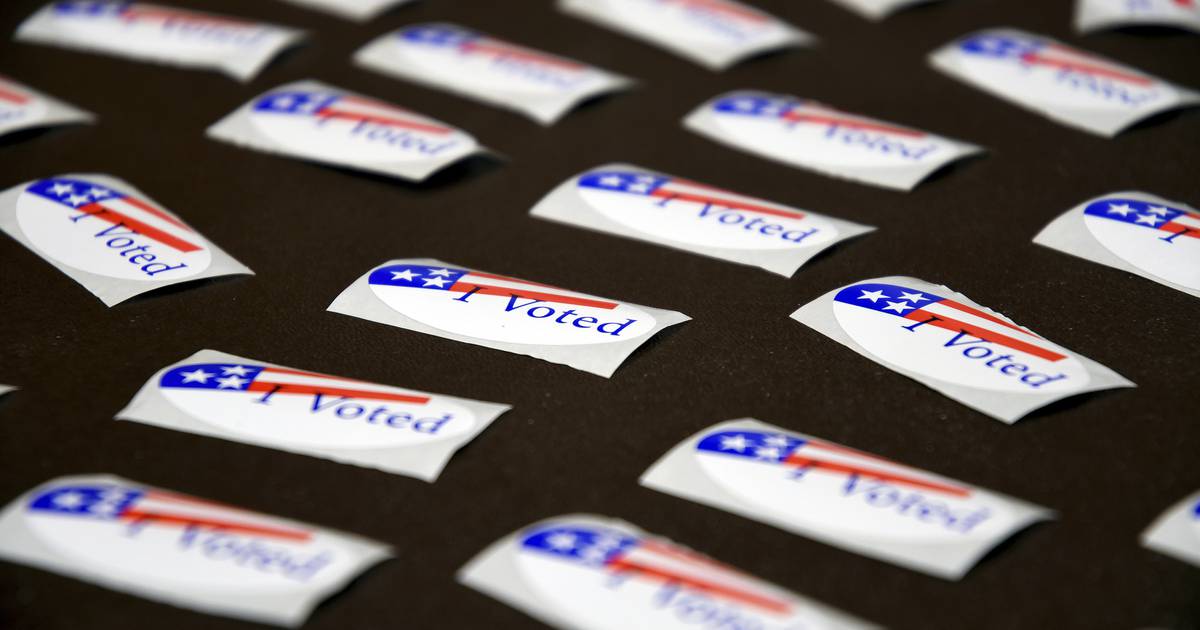Florida ditches voter-fraud detection system amid Soros conspiracy theory

Florida abruptly pulled out of a nationwide system used to help maintain voter rolls and detect voter fraud Monday after it became the subject of right-wing conspiracy theories involving liberal billionaire George Soros.
Secretary of State Cord Byrd announced the state was terminating its membership with the Electronic Registration Information Center, or ERIC, just months after he credited the multi-state organization for helping identify people who voted in Florida and another state.
Advertisement
ERIC allows elections officials to cross-reference their voter rolls with those of other member states. It scours databases for voter and motor vehicle registrations, U.S. Postal Service addresses and Social Security death records to compare lists of voters and keep the rolls up to date.
The system also detects when someone tries to vote in more than one state. Three residents of The Villages were charged with voting more than once in the 2020 presidential election, and Lake and Osceola counties flagged 13 additional cases that same year.
Advertisement
Florida joined Missouri and West Virginia in pulling out of the system on Monday, the latest Republican-led states to cut ties. What was once a 34-state coalition of states across the partisan spectrum is now down to just 28.
“Today’s announcement follows efforts led by Florida over the past year to reform ERIC through attempts to secure data and eliminate ERIC’s partisan tendencies, all of which were rejected.” Byrd’s office said in a statement. “Withdrawing from ERIC will ensure the data privacy of Florida voters is protected.”
The move came as a shock to Republican and Democratic supervisors alike, who said Monday they were not told in advance.
“The decision that was made to pull out of ERIC was not made in the best interest of over 14 million voters here in the state of Florida,” said Seminole elections chief Chris Anderson, a Republican.
“It’s a terrible decision,” Anderson said. “You just took a tool away from every supervisor in the state of Florida to keep clean voting rolls. It was definitely a help. And now we’ve lost it.”
The statement from Byrd’s office did not clarify his privacy concerns or the questions about ERIC’s “partisan leanings.” But the system had entered the crosshairs of conservative groups because of a tenuous connection to Soros, a prominent supporter of Democrats and progressive causes.
According to the Washington Post, ERIC was originally founded in part by Pew Charitable Trusts, which in turn receives funding from Soros’ organization. But ERIC operates using taxpayer funds from the member states and has not received funding from Soros.
That did not stop the American Policy Center, a right-wing think tank, from alleging ERIC is an “artificial intelligence gathering system and left-wing voter registration program, associated with blatantly inaccurate voter rolls in its members.”
Advertisement
The Post also reported that conservative critics have accused ERIC co-founder David Becker, who currently leads the nonprofit Center for Election Innovation & Research, of sharing ERIC data with liberal groups. There is no evidence for that allegation, the Post reported.
Byrd, who was appointed by Gov. Ron DeSantis in May, has been associated with right-wing conspiracy theories himself.
He came under fire at the time of his appointment for refusing to say if President Biden won the 2020 election, only stating that Biden was certified the winner.
DeSantis last year also appointed Byrd’s wife, Esther Byrd, a former Marine who works in her husband’s law office, to the state Board of Education. She defended QAnon, a far-right conspiracy cult that says the world is ruled by Satan-worshipping child molesters, after the couple was seen flying a QAnon flag on their boat.
They both quit Twitter for more than a year after she posted comments supporting the Capitol insurrection.
Days before Florida’s announcement, ERIC’s executive director Shane Hamlin released a statement that ERIC “is never connected to any state’s voter registration system. Members retain complete control over their voter rolls and they use the reports we provide in ways that comply with federal and state laws.”
Advertisement
Hamlin wrote ERIC is “a member-run, member-driven organization. State election officials – our members – govern ERIC and fund our day-to-day operations through payment of annual dues, which they set for themselves.”
Political Pulse
Weekly
Get latest updates political news from Central Florida and across the state.
The sudden divorce comes just four years after DeSantis praised ERIC when announcing that Florida was joining the system.
“One of my administration’s top priorities is protecting the integrity of Florida’s elections, which is why joining ERIC is the right thing to do for our state,” DeSantis said in 2019.
But DeSantis was skeptical of ERIC’s requirement that the state had to reach out via mail to every eligible but unregistered voter in Florida, which then-Division of Elections director Maria Matthews called the “stick” in a “carrot and stick” scenario when talking about whether to join the compact.
That description was criticized by some supervisors, who “bristled at the idea that reaching out to unregistered voters should be viewed as some sort of punishment,” according to Politico. Critics held it up as the reason the DeSantis administration was slow in joining the partnership.
It took until 2021 for all 67 counties to use the system for the first time to identify and purge ineligible voters. It was universally praised by the county supervisors.
Advertisement
But since then, DeSantis has increasingly cited “election integrity” to back increasing restrictions on voting, including eliminating most drop boxes for mail-in ballots and creating a controversial election police force that has arrested 20 felons for voting, many of whom had been told by the government that they could.
The Associated Press contributed to this report.
This article has been archived for your research. The original version from Orlando Sentinel can be found here.
